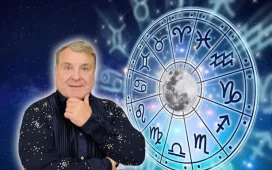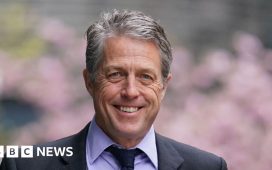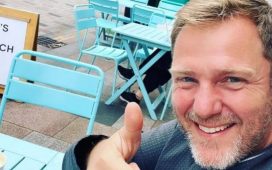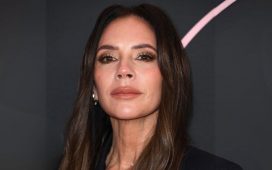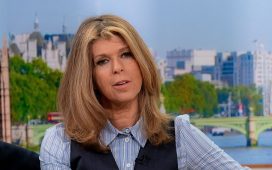
The presenter said she was “gutted particularly for our brilliant, young, ambitious, talented team”
Broadcaster Victoria Derbyshire has said she is “absolutely devastated” by the news her BBC Two show is ending.
She said she first learned of the plan in The Times newspaper on Wednesday.
The presenter said she was “gutted particularly for our brilliant, young, ambitious, talented team”.
The Victoria Derbyshire Show will come off air later this year as part of a plan to save £80m in BBC News. Fran Unsworth, the BBC’s head of news, said it had “not been an easy decision”.
Writing on Twitter, Derbyshire added that she was “unbelievably proud” of what the show had achieved.
Unsworth said the show’s “award-winning, distinctive journalism” was “exactly the type of journalism we need to continue”.
Some of the programme’s journalism roles would be retained, she said, while Derbyshire will take “a wider role across our broadcast and digital output”.
The presenter will also “continue to lead on some of the high-profile audience events and original stories she has championed so effectively in recent years”, Unsworth pledged.
She explained: “However, audience behaviours are changing. Linear television viewing is declining, and as we progress with our £80m savings target, it is no longer cost-effective to continue producing the programme on television.”
In 2016 it was announced that BBC News would need to find £80m of cuts over four years. The corporation is due to make a further announcement about its news operation next week.
‘We don’t give up’
Earlier, Derbyshire opened Thursday’s programme by saying: “We are still here telling your stories and covering the issues that are important to you in your life. And do you know what? We don’t give up.”
She went on to introduce an investigation. “And that’s why we’ve been back to a housing estate in London after we exposed the shocking living conditions there last year,” she continued.
Aired at 10:00 on BBC Two and the BBC News Channel every weekday, the show focuses on original stories, audience debates and exclusive interviews as well as breaking news. It was launched in April 2015.
In 2017 the show won a Bafta for its news coverage of the abuse of footballers, while Derbyshire herself has won and been nominated for several awards for presenting the show.
Other exclusive stories the show has uncovered include the number of deaths linked to Xanax and the way family courts treat victims of domestic violence.
‘Courageous journalism at its best’
Shadow culture secretary Tracy Brabin has written to BBC director general Tony Hall, calling on him to reconsider.
“The Victoria Derbyshire Show itself is brave and courageous journalism at its very best,” she wrote. “It seeks out the stories that are so rarely covered elsewhere and broadcasts them in a format that is popular with and accessible to millions.”
She added: “While I understand that there is often competition on budgets, I simply cannot fathom a situation where a reduction of accessibly and popular news and current affairs is the right course of action.”
Numerous media personalities also responded with shock to the news.
Louisa Compton, who edited the Victoria Derbyshire Show when it was launched, said the decision was “madness”.
ITV’s Piers Morgan said it was a “very strange” call, while former BBC Radio 5 Live host Richard Bacon said it was “the best journalism in daytime hosted by the best journalist”.
Conservative MP Damian Collins, who is seeking re-election as chairman of the Digital, Culture, Media and Sport Select Committee, said reports of the planned cuts were “disturbing”.
He said there needs to be “a proper review of BBC finances” and licence fee payers should be asking what they value and want to see more of.
Anna Collinson and Jim Reed, journalists for the programme, both called the decision “gutting”.
When Victoria Derbyshire proposed a TV version of her Radio 5 Live Show to former BBC News boss James Harding, he gave her the green light within days.
BBC News has a big problem in connecting with some licence fee payers away from big cities and from poorer backgrounds – or, in the jargon, “underserved audiences”.
For Harding and BBC News, Derbyshire – and the show’s first editor, Louisa Compton (now at Channel 4) – were the solution to a big problem.
It worked – online.
Derbyshire’s programme was highly effective in reaching those people, through original journalism, investigations and scoops of a kind that the BBC generally struggles to do. But on linear TV channels it failed to garner a sufficiently big audience to justify its cost.
First it was chopped from two hours to one. Now it is gone.
BBC News is looking to make big savings and re-organise its structure so that digital journalism is prioritised.

